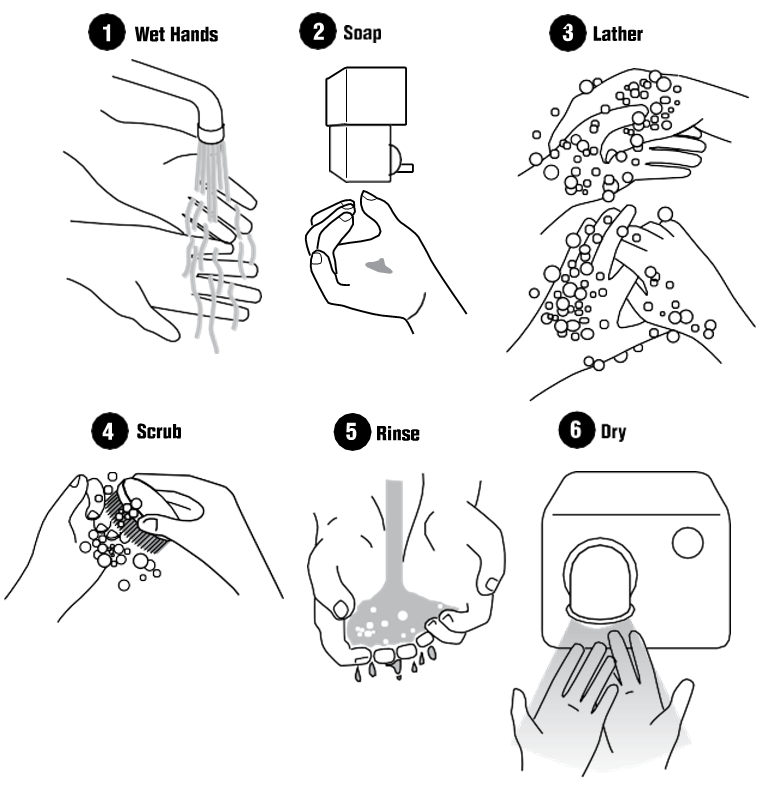21 Hygiene in the Workplace
Learning Objectives
Demonstrate personal hygiene in the workplace
Inadequate personal hygiene can cause:
- food contamination,
- food poisoning, and
- spreading of infection.
[h5p id=”56″]
- MAINTAIN good personal hygiene. This includes daily baths or showers, frequent shampoos, clean clothes, short clean nails, and good dental hygiene.
- WASH YOUR HANDS. Dirty hands are prime culprits in transmitting contaminants to food. Scrub hands after touching food; after smoking, chewing tobacco, eating and drinking, taking out the garbage, touching body parts such as the mouth, or after going to the washroom; before performing the next job function.
- SANITIZE hands after washing if a facility is available.
- REPORT immediately any symptoms of illness or infection to a doctor.
- COVER any cuts with a bandage and wear clean gloves.
- CHANGE gloves if you touch anything that would require washing hands.
- Touch food with your hands as little as possible.
- WEAR hair nets to prevent the deposition of loose hair on food. The average person loses about 50 hairs per day.
- DO NOT USE aprons to dry your hands.
- DO NOT SMOKE in food preparation areas.
- USE water at a temperature that is comfortable to wash for 20 seconds.
- USE A BRUSH FOR NAILS to remove contaminants under the nails.
- WASH FOR 20 SECONDS the hands, wrists, forearms up to elbow and other areas that may come in contact with food.
- RINSE thoroughly and dry using single service towel or hot-air dryer.

Proper Hand Washing Technique - DO NOT USE your hands to remove leftover food from plates.
- DO NOT COME to work if you have a cold or a sore throat. Coughing and sneezing will contaminate food and the work area with germs.
- DO NOT WEAR rubber or latex gloves near open flames or other heat sources. Gloves may melt or catch fire.
- AVOID WEARING jewelry in food preparation areas, especially rings; they may catch dirt and make it harder to clean hands.
- DO NOT COMB your hair in food preparation areas. DO NOT LEAVE articles of clothing in the food preparation area. Use the closet or cloak room.
